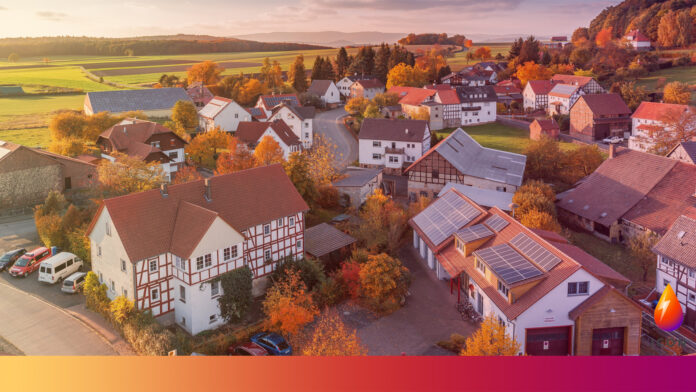Over half of homeowners (55%) have plans for green home improvements over the next decade, however costs and finance options are the greatest barriers to carrying these improvements out, according to new research by NatWest and IHS Markit.
The latest survey from the Greener Homes Attitude Tracker, based on responses from 4,500 people across the UK in the third quarter of 2021, found that only a small percentage of homebuyers considered EPC rating a ‘very important’ factor if purchasing a home in the next 10 years, the fourth lowest among the 12 factors surveyed.
Only 15% of households said that having an EPC rating of C or above was essential when selecting a property.
The EPC rating ranked below other environmental factors, such as air quality (37% said ‘very important’), amount of local green space (38%) and levels of noise pollution (41%).
Lloyd Cochrane, Head of Mortgages at NatWest commented on the findings: “Making sustainable choices in the home can often be complex and expensive.
“The Greener Homes Attitude Tracker is designed to give the bank, and the wider market, a better understanding of consumer attitudes so we can ensure we support our customers in the best way.
“It’s one of a number of ways that we can contribute to raising consumers awareness around sustainability as the UK government works towards net zero target by 2050.
“But with COP 26 fast approaching, the tracker shows that there is a noticeable proportion of homeowners who firstly don’t consider an EPC rating or energy efficiency as important and secondly, have no plans to make improvements in the next decade.
“Alongside the products we provide to support customers make greener choices and the information to inform those choices there is much more we all need to do across industry and government to raise consumer awareness, provide relevant information and appropriate support.
“The switch to greener lives and homes should be accessible to all – not just those who can afford it.”
Out of all the environmental factors listed, risk of flooding was considered by far the most important (55%), even beating internet speed (46%) for importance.
The recent rises in wholesale gas prices are another illustration of the challenges that consumers face as they try to understand what they can do to play their part, how much that may cost and how they can protect themselves from rising energy bills.
The tracker found further need to raise awareness of what actions can be taken, with only one-in-seven homeowners ‘very confident’ of being able to replace their gas boiler with a more sustainable alternative at an estimated cost of £5,000. 57% were either ‘not very’ or ‘not at all confident’.
Other findings of the survey included:
By region
- 20% of Scottish households who are looking to buy a house in the next 10 years said an EPC rating of C or above is an ‘essential’ feature when selecting a property (the highest proportion).
- Conversely, 10% of Scottish households said it’s ‘not at all important’, which is the highest of any region or nation.
- 10% of those in the North of England who are looking to buy a house in the next 10 years said an EPC rating of C or above is an ‘essential’ feature.
- By region, homeowners in the North of England (57%) are the most likely to have plans to make property sustainability changes in the next decade compared to 51% in Scotland.
Attitudes by Age Group
- 18% of 35-44 year-olds who are looking to buy a house in the next 10 years say an EPC rating of C or above is an ‘essential’ feature when selecting a property (the highest proportion).
- 11% of 18-24 year olds who are looking to buy a house in the next 10 years say an EPC rating or C or above is an ‘essential’ feature (the lowest).
The Greener Homes Attitude Tracker is available in full on the NatWest website.
